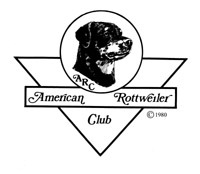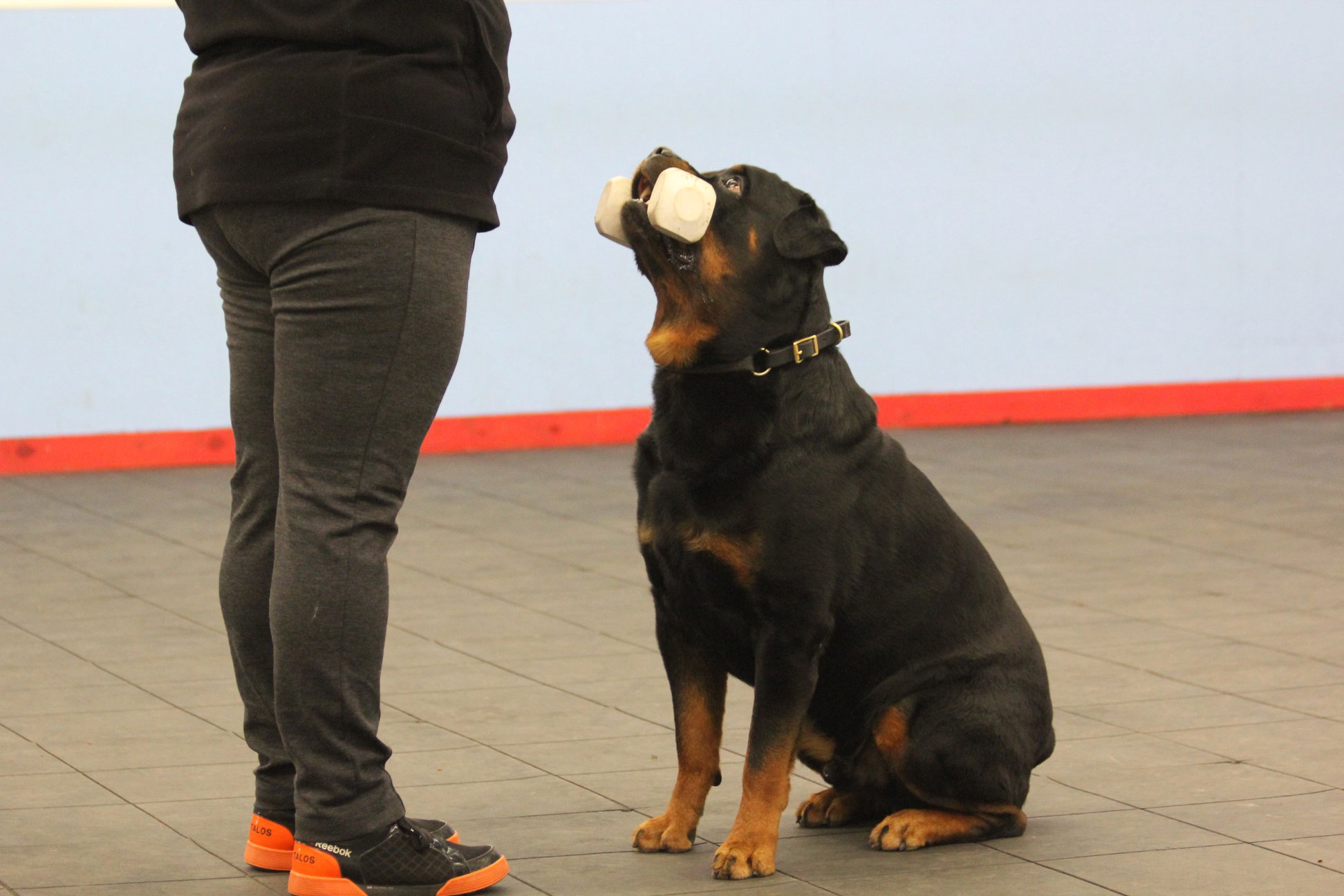The Rottweiler is a robust, powerful, and loyal dog with strong protective instincts. While Rottweilers are outstanding companions and protectors, owning a Rottweiler carries a great deal of responsibility and commitment. Because of the Rottweiler’s size, strength, and protectiveness, and he must be trained early in his life. Fortunately, Rottweilers are intelligent working dogs and begin responding to commands as soon as they understand what you want of them. Occasionally there are exceptions. It is very important to establish control over your dog.
Obedience training is a must for anyone who owns a Rottweiler. And training should start as soon as possible. A group obedience class, under a reputable, experience trainer who utilizes positive reinforcement methods is the best way to do this. Many trainers offer Puppy Kindergarten classes which are super both to start training and for puppy socialization. Taking the time and making the commitment to train your Rottweiler is an important part of developing a good relationship with your dog and will make the family dog a pleasure to live with; a family companion with manners.
Finding a professional dog trainer may take a bit of research, but making the right choice will be worth the time.
Steps to take to find a good trainer:
- Ask your breeder. Even if your breeder does not live in your area, he may know of friends, fellow club members, etc. who may live near you and who may be able to make a recommendation.
- Utilize the AKC website to find local Clubs. The link is www.apps.akc.org/apps/clubs/search/index.cfm There you can find a list of various types of clubs that you can search by state. The first two to look at are the Training and Obedience Clubs. If you cannot find anything near you in either of those categories, then check the Agility, Conformation, Performance and Tracking Clubs. Even if they do not offer any Obedience Classes, they can often refer you to trainers in your area.
- Ask your or other local Veterinarians. If he does not know of any trainers, he may be able to give you the names of some breeders/dog owners in your area that may.
- Ask local dog grooming businesses and/or boarding kennels. Ask friends who have dogs.
- Look in the Yellow Pages.
- As a last resort, buy some training books and videos; you can also look on YouTube and other dog training web sites. It is always best to participate in a training class, especially if you are a first time Rottweiler owner. However, if you’ve done your research and you aren’t able to find a trainer who meets your standards, it is better to train on your own then do no training at all.
*******************
Once you have found a training class or trainer ask the trainer if you may observe a class. While you are there, look for a few things:
- Are the dogs happy? The dogs should look as if they are enjoying the class; training should be fun.
- Are the people enjoying themselves? Look for a class that encourages all family members to attend and participate.
- Is there a good ratio of people to dogs? Most classes should have about one trainer to six dogs.
- Is the location secure, clean and sanitary? Gates and doors should be latched and closed. The floors should be free of debris, and supplies should be provided for clean-up.
- What kinds of tools are being used? Good tools to look for include leashes, flat collars, head halters, bite-sized treats, toys, harnesses and lots of praise. Tools you don’t want to see include electronic collars, prong collars, choke collars and flexi-leads.
- The trainer should never use physical punishment. Training should never include hitting, kicking, jerking and popping the leash, stringing the dog up or hanging the dog. Rottweilers do occasionally require strong physical corrections, but some trainers tend to be much tougher than necessary. Physical mastery of the dog is often less important than sensitive and positive training methods, time, and patience.
- Do they require a health certificate and/or proof of vaccinations before the start of a class? A good trainer will ensure that your pet’s health is protected by having this requirement.
- Does the trainer belong to any training educational organizations? Organizations such as the APDT, IAABC, NADOI and the CCPDT strongly encourage or even require continuing education for their trainers. So trainers who belong are more likely to be keeping up on their skills and knowledge. This applies more to private trainers; classes as part of a club are most likely taught by club members who have experience and actively train and participate in Obedience, Rally and Agility Trials.
By training your dog, you won’t have to worry about what he destroyed while you were away from home and you can have company over without having to worry about what to do with your dog once they arrive, etc. A calm, well-behaved dog is a pleasure to have as a family member. So take some time to train your best friend because you love your dog.


